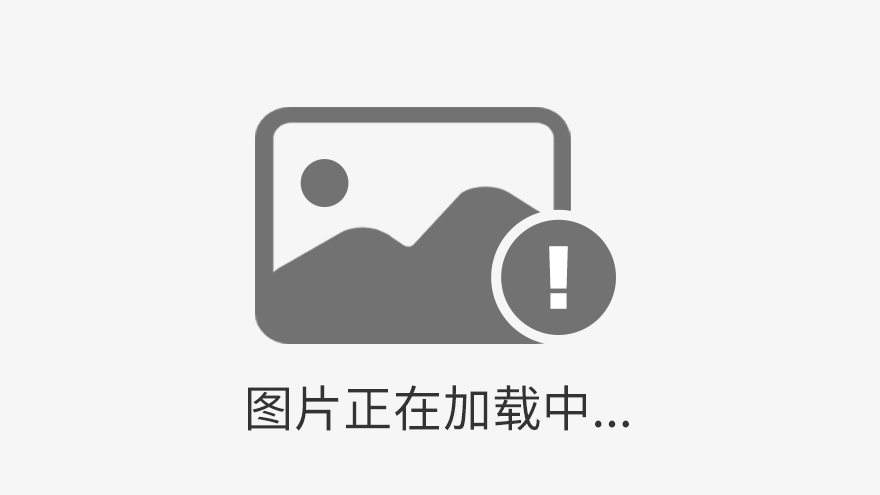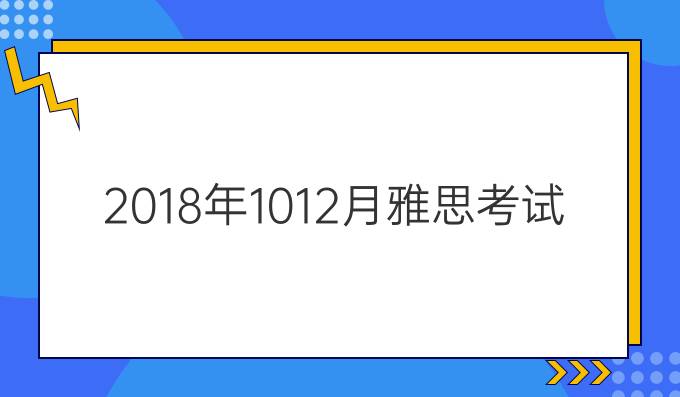Right. Today, my friends, I'm gonna tell you awesome things that you must, well, you should be doing if you're preparing for IELTS speaking in the coming months. Let's do it.

朋友们,今天,我要给大家带来一些干货,如果你们在接下来的几个月里备考雅思口语,那就听听我说吧。我们开始吧。
So, my name is Keith and I run the keithspeakingacademy. Here to help you speak better English, give better answers, and get a higher score on IELTS speaking.
我叫基思,keithspeakingacademy 网站的运营人。我来帮助大家提高英语口语,作出更好的回答,在雅思口语中获得更高的分数。
So today I'd like to give you these 10 tips and ideas about how to best prepare for IELTS speaking. So, first of all, just to be clear, actually, there is no one best way to study, to learn, or prepare.
今天我想给你们带来十个技巧和建议,教你们如何为雅思口语做最好的准备。首先,澄清一下,实际上,没有最好的学习和备考方法。
Everybody's different. We have different backgrounds, different environments, different ability.
每个人都是不同的。我们有不同的背景,不同的环境,不同的能力。
But what I'm giving you today are 10 guidelines that will really help you, whatever your background, get ready for the IELTS speaking test. As we begin, let me just remind you.
今天我要为大家带来十个备考策略,无论你的背景如何,都能帮助你为雅思口语考试做好准备。我们开始吧,先提醒一下。
If you haven't done yet, subscribe to the channel, turn on the notifications so you can learn about new videos coming your way soon. Okay, great! Well, let's begin with tip number one.
还没有订阅的同学请订阅我的频道,打开通知,这样,视频更新的时候你很快就能知道了。太好了,让我们从第一个策略开始。
So, first and foremost, I would say the first thing you should do is to do a mock test to know your strengths and your weaknesses. So, when you have a destination, somewhere you want to go, you may have a map and a compass and that can help you.
首先,也是最重要的,我想说你应该做的第一件事是做一个模拟测试来了解你的强项和弱项。当你有一个目的地,一个你想去的地方,你可能有一张地图和一个指南针,这可以帮助你。
But if you don't know where you are now, how are you going to get there? What happens when you go into google maps and you look for directions?
如果你不知道你现在在哪里,你要怎么去那里?当你进入谷歌地图找方向时会发生什么?
The first thing it says is your location. You need to know where you are now and it's the same with IELTS, right?
它首先显示的是你的位置。你需要知道你现在在哪里,雅思考试也是一样,对吧?
If your goal, your destination is a band seven, you need to know your level now. Are you a four, a five, a six? What are your strengths? What are your weaknesses?
如果你的目标,你的目的是考七分,你需要知道你现在的水平。你是四分、五分、还是六分的水平?你的强项是什么?你的缺点是什么?
So that you know where to focus as you study. So, that's it.
当你学习的时候,你知道该把注意力放在哪里。就是这样。
Do a mock test. You can find a teacher to do it with you.
做一个模拟测试。你可以找个老师和你一起做。
The one that I recommend is take ielts. net. They have a package of mock tests that you can do.
我推荐的一个方法是使用 ielts.net。它们有一个供你使用的模拟测试包。
The great thing is they've got the four skills. They are professional and I think great value for money.
最重要的是它们了解了这四项技能。他们很专业,而且我认为钱花得很值。
So, you could do that. You can do it all online and then find out get feedback of where you are now. So, you know how best to get where you're going.
你可以这样做。你可以在网上做这个测试,然后知道你现在究竟达到哪个水平。你知道如何以最好的方式达到你想要的分数。
So, that's it. Do a mock test first. Number two.
所以,就是这样。先做一个模拟测试。第二点。
Number two is to make a realistic plan. So, when you make a plan, I would say you want to spend about 80 per cent of your time improving your general spoken English and about 20 per cent focused on the IELTS test, the format, the techniques and approaches for different questions there, right?
第二点就是制定一个切实可行的计划。当你制定计划的时候,我想你应该把80%的时间用来提高你的口语水平,20%的时间用来关注雅思考试的形式,不同问题的技巧和方法。
When you're looking at the the 80 per cent general English speaking and remember IELTS speaking is the same for academic or general, then be sure to focus on your study on language vocabulary.?So learning new words, learning collocations, learning words in context, um, learning the grammar of words and how they're used.
当你在用80%的时间学习口语的时候,要记住,雅思口语对于学术类和一般类都是一样的,因此一定要把重点放在语言词汇的学习上。学习生词,学习搭配,学习单词的语境,学习单词的语法和用法。
Also on grammar, on activating your grammar, how it's used and how the grammar works. Make sure you're doing both of those and activate your language.
还有语法,激活你的语法,它是如何使用的,它的作用是什么。确保你同时做了这两件事,并且激活了你的语言。
So, practice, practice, practice. It's not enough to watch videos, it's not enough to listen to podcasts.
所以,练习,练习,再练习。看视频是不够的,听播客是不够的。
You need to be practicing as well so that you're activating a lot of the language. So, make sure your plan is balanced with general English and IELTS practice, make sure it's balanced with study and practice, and then make sure it's a realistic plan.
你也需要练习,这样你才能激活大量的语言。要确保你的计划是学习英语和练习雅思口语相平衡,确保学习和练习相平衡,然后确保它是一个实际可行的计划。
So, a lot of students, right, might come to a teacher like me two weeks before the class and say, "Listen, I'm a band five, and my goal is to be a band seven. I've got the exam in two weeks time. Help!" Right! So, realistic, realistically, you're not going to achieve that, right?
很多学生可能会在上课前两周来找老师,比如我,说:“听着,我是五分水平的学生,我的目标是考七分。我两周后就要考试了。帮帮我!”好吧!现实一点,你是不会做到的,对吧?
Now, in your plan, you need to know how long to dedicate to studying and practicing in order to get to the level that you want to get to, right? Now, of course, everybody is different.
在你的计划中,你需要知道为了达到你想达到的水平,你需要花多长时间来学习和练习。当然,每个人都是不同的。
We have different backgrounds, maybe you've never spoken English before, maybe you traveled to an English-speaking country for several years when you were younger. We all have different motivations and different opportunities for practicing now.
我们有不同的背景,也许你以前从未说过英语,也许你年轻的时候去讲英语的国家旅行了几年。我们都有不同的动机和不同的练习机会。
So, we all learn in different ways. But there is research done and Cambridge do give some guidelines about how long it takes to move up a level.
所以,我们都以不同的方式学习。但是有这方面的研究,剑桥大学确实给出了一些关于提高分数需要多长时间的指南。
So, very simply, right, at a lower level, the kind of from a band three to a band four, it may take 120 hours of guided study, right? If you're looking and as you move up the levels, it takes longer, you need more time.
很简单,对吧,在较低的级别中,从三分到四分,可能需要一百二十个小时的指导学习。你每升一分,花的时间越长,你需要更多的时间。
So, Cambridge give estimates, maybe band 4 to a band 5 around 200 hours, band 5 to a band 6 maybe 260, about 6 to a band 7 maybe 300 hours. Very very approximately speaking, right?
剑桥估计,四分到五分大概要两百个小时,五分到六分大概要两百六十个小时,六分到七分大概三百个小时。非常非常大概的说法。
But think about it. If it's gonna take you 300 hours to move from a band six to a band seven and you're studying three hours a day, that's a hundred days. And if you're studying Monday to Friday, five days a week, well, that's five months.
但是仔细想想。如果你要花三百个小时从六分到七分,而你每天学习三个小时,那就是一百天。如果你周一到周五学习,一周五天,那就是五个月。
Five months to go up a level. So, that can give you a guideline, right?
五个月才能升一分。这可以给你一个指导,对吧?
As I said, it's not true for everybody because we all have different circumstances. But as a very rough guideline, that's what you may be looking at.
就像我说的,不是每个人都是这样,因为我们都有不同的环境。但你可以把它作为一个非常粗略的准则来参考。
So, make a realistic plan based on that, right? And when you have your plan, tell other people.
在此基础上制定一个切实可行的计划。当你制定了你的计划,告诉其他人。
If you make a plan to do something, I'm gonna to do, I don't know, I'm gonna do the IELTS test, tell other people what you're going to do. "I'm gonna do IELTS in october.
如果你做了一个计划,我要,例如,我要参加雅思考试,告诉其他人你要做什么。“我十月份要参加雅思考试。
I'm gnna study five days a week, two hours a day." Tell your friends and your family, so they can hold you accountable.
我希望每周学习五天,每天学习两小时。”告诉你的朋友和家人,这样他们才能对你负责。
And when you're not studying, they say, "Well, you said you're gonna do this and now you're not. What's happening?" Telling other people can really help them encourage you and push you, hold you accountable to make sure you are studying.
当你不学习的时候,他们会说:“你说你要做这个,现在你不做了。怎么回事?”告诉别人真的可以帮助他们鼓励你,督促你,让你对自己负责,确保你在学习。
So, share your plan with others as well. Now, number three.
那么,把你的计划也分享给别人吧。现在,第三点。
And number three: Get some good resources. There's nothing worse than spending hours going through websites that I've got unreliable information, bad English, and just do not help you, right?
第三点:找一些好的资源。没有什么比花几个小时浏览网站更糟糕的了,我得到的信息不可靠,英语很烂,而且就是不能帮助你。
It's a, it's a maze of information out there. So, find the good reliable resources.
这是一个信息的迷宫。要找到好的可靠的资源。
Now, these may include teachers, right? Find a good teacher, a good school if you can.
这些人可能包括老师,对吧?如果可能的话,找一个好老师,一个好学校。
That may be face to face or online. Communities, on Facebook, there are lots of very very good communities where you can be learning lots, sharing, getting motivated with other students as well.
可以是面对面的,也可以是在线的。在脸书上有很多非常好的社区,在那里你可以学到很多东西,分享,和其他学生一起获得动力。
Websites, of course, but again, make sure you get the good reliable ones. For example, ieltsliz is very good, ieltsadvantage has some very good free resources, ieltsetc also great free resources, the ielts. com, britishcouncil.
当然了,还有网站,但是再次强调,一定要确保你得到的资料是好的可靠的。例如,ieltsliz 非常好,ieltsadvantage 有一些非常好的免费资源,ieltsetc 也有很好的免费资源,ielts.com,britishcouncil。
They all have some great resources that you can use. There are books.
它们都有一些你可以利用的资源。还有书。
So I would say, you know, two of the key books probably The official Cambridge Guide to IELTS would be a invaluable purchase, Cambridge Practice Tests, um, the series 1 to 14. All of those can be great to be doing practice tests.
所以我想说,有两本关键的书,《剑桥雅思官方指南》,一定要买,《剑桥练习考试》,嗯,系列 1 到 14。所有这些对于做练习测试都很有用。
I think reference books, having a good dictionary is absolutely essential. Nowadays, most people are using online dictionaries, but you know, the macmillan, collins, oxford, they're all great dictionaries online.
我认为参考书、一本好字典是绝对必要的。如今,大多数人都在使用在线词典,但你知道,macmillan、柯林斯、牛津,它们都是很棒的在线词典。
And then you've got reference books. I like the series which is the English Collocations in Use by Michael McCarthy.
还有参考书。我喜欢迈克尔·麦卡锡的《英语搭配的使用》。
There's also the English Grammar in Use, English Idioms in Use. There's different levels. I think the advanced level with again, Michael McCarthy, Felicity O'dell.
还有《英语语法的使用》,《英语习语的使用》。有不同的水平。我认为高水平的学生可以选迈克尔·麦卡锡、费利西蒂·奥戴尔的书。
There these are great reference books that can help you expand your knowledge and vocabulary. But also, make sure that you're activating it through practice.
有一些很好的参考书可以帮助你扩展你的知识和词汇。同时,一定要通过练习来激活它。
So, these are all great resources to have that will help you prepare for IELTS speaking. Number four is to become familiar with the format of the test: the common topics in the test, and the evaluation criteria for the test.
这些都是帮助你准备雅思口语的好资源。第四是熟悉考试的形式:考试中常见的话题,以及考试的评分标准。
It's really important that you know the kind of questions you're going to be asked so you're not caught out by surprise. Understanding the the topics so that helping you prepare by topic.
知道你将要被问到的问题类型是非常重要的,这样你就不会措手不及。理解话题,有助于你按话题备考。
I wouldn't necessarily prepare all the questions. I mean, there are just so many and they change, and in part three, they can change.
我不一定要准备所有的问题。我的意思是,问题有那么多,而且还会变,在第三部分,它们可以变。
The examiner can make them up. So, focus on the topics that you can study, um, whether the topics are holidays, travel, environment, animals, right?
考官可以编一些问题出来。所以,要关注你可以学习的话题,嗯,不管这个话题是假期、旅行、环境还是动物。
Learning to talk confidently and flexibly about those topics is key. So, where can you find this information about the format of the exam and the topics?
学会自信而灵活地谈论这些话题是关键。那么,你在哪里可以找到关于考试形式和题目的信息呢?
Well, keithspeakingacademy. com has something, ielts. com, the official website, britishcouncil has a free course, roadtoielts tells you all about the exam format. There's also on futurelearn, understanding ielts speaking, a free course, I think for three weeks, will help you understand the format of the test.
好吧,keithspeakingacademy.com 有一些资料,ielts.com 是官方网站,britishcouncil 有免费课程,roadtoielts 告诉你所有关于考试形式的信息。在 futurelearn 网站上有一门免费的课程,叫做“理解雅思口语”,我想这是一门为期三周的课程,可以帮助你理解考试的形式。
Really well worth doing. And finally, knowing the evaluation criteria.
真的很值得做。最后,了解评估标准。
So, the basics are fluency, vocabulary, grammar pronunciation. The band descriptors are available publicly.
最基本的是流利度,词汇量,语法发音。分数要求说明可以在网上获得。
They're out there on the Internet. You can get them and check what you need there.
它们在网上有。你可以去查一下,看看你需要哪些能力。
There's a link down below if you want to get those. And if you want to learn more about the evaluation, watch my video up here.
如果你想要了解这些,下面有一个链接。如果你想了解更多关于评估的信息,请观看我的视频。
It tells you all about the four areas you're evaluated on in IELTS speaking. Next up.
它会告诉你雅思口语评估的四个方面。下一个。
Number five is to do lots of blah blah blah blah blah blah, speaking practice. So, sometimes, students fall into the trap of studying with the books, studying with the books watching the videos watching the videos.
第五点就是多做口语练习。有时候,学生们会陷入书本学习,书本学习,看视频,看视频的圈套。
But they're not actually speaking or practicing. And it's essential, right, you need to practice repeating for your pronunciation, intonation.
但他们实际上并没有开口说或练习。这很重要,对吧,你需要练习重复你的发音和语调。
But you also need to practice, interacting with people, so you can react quickly, be flexible, think on your feet, right? So, speaking practice is essential.
但是你也需要练习,与人互动,这样你才能反应迅速,灵活,独立思考,对吧?所以,口语练习很重要。
A great way to do that is finding a speaking partner. Again, Facebook groups are full of people looking for speaking partners.
找一个口语拍档是一个非常好的方法。同样,Facebook 群组里到处都是寻找口语拍档的人。
You can also find a teacher. Nowadays, on online, you've got CAMBLY, you've got italki, find some great teachers who can help you practice English or look for a language partner where you teach them your language and they teach you English.
你也可以找老师。现在,在网上,你可以找到 CAMBLY,你可以找到 italki,找一些可以帮助你练习英语的好老师,或者找一个语言学习拍档,你可以教他们你的语言,他们也可以教你英语。
It's another way of doing it. That way, it can be free, you just give your time but get into the habit of practicing and practicing whenever you can.
这是另一种方法。用这个方法就更自由了,你只需要付出你的时间,但是要养成练习的习惯,只要你有机会就不断练习。
Number six is to get feedback on your speaking. So, when you're speaking, you are gonna make mistakes.
第六,对你的口语进行反馈。所以,当你讲英语的时候,你会犯错误。
There'll be issues around fluency, pronunciation, use of vocabulary or grammar. And you need somebody to say, "Listen, that is not correct. Change it."
在流利度、发音、词汇使用或语法方面会有问题。你需要有人告诉你,“听着,这个不对。改掉。”
"What do you mean by that?" - "Do you realize you're hesitating?" And just to have almost a mirror that somebody with a very good level of English who can give you feedback, give you corrections.
“你这是什么意思?” - “你意识到你在犹犹豫豫的吗?”就像一面镜子,一个英语水平很高的人可以给你反馈,给你纠正。
Because if you're not correcting your mistakes, the danger is you repeat, repeat, repeat the mistakes and you don't improve. So, having somebody to give you feedback, that can be a student at a higher level, it can be a language partner or a speaking partner, it can be a teacher.
因为如果你不纠正你的错误,危险就在于你会一直重复错误,无法改进。找个人给你反馈吧,可以是高水平的学生,也可以是学习拍档或口语拍档,也可以是老师。
Again, if you're on one of these online platforms, having a teacher to give you the feedback. It's really important to get that.
如果你都有这些在线平台,就找个老师给你反馈。这是非常重要的。
Now, number seven. . . . . . in some ways is related to number six about getting feedback.
第七点............在某种程度上,它与第六点有关,关于获得反馈。
Number seven is to record yourself speaking, and listen, so you can improve. Now, if you can't find a teacher to give you feedback, actually you yourself can give yourself feedback.
第七,录下自己的口语,然后倾听,这样你就能提高自己。如果你找不到老师给你反馈,实际上你可以自己给自己反馈。
When you record yourself speaking and listen back, you're then able to some extent to evaluate some of the things you're saying. You can certainly evaluate fluency, hesitation, because you can hear it.
当你录下自己的讲话并回放时,你就能在某种程度上评估你所说的内容。你肯定能判断你的流利程度、是否犹豫的问题,因为你能听出来。
You may be able to evaluate grammar, common mistakes that you know you make. You may be able to pick up on pronunciation issues possibly as well, right?
你也许能判断出你所犯的语法和常见错误。你也许能发现你的发音问题。
And the great thing, as I mentioned before about the band descriptors, right, the evaluation criteria, is you can use that to also listen to your recording and say, "The band 7 level needs this flexibility. Am I flexible or am I just giving memorized answers?"
最棒的是,正如我之前提到的分数要求描述,对吧,评估标准,你可以用它来对比你的录音,然后说:“七分考生需要这种灵活性。我够灵活吗,还是我只是背诵答案?”
So, use that as well to help you see if you're making progress. Also, when you record yourself, you can share that with friends or other students or your teacher.
那么,用这种方法来帮助你看看自己是否有进步吧。此外,当你自己录制时,你可以与朋友、其他学生或老师分享。
When you ask with a speaking partner, you ask your speaking and ask them to correct you. It can be quite embarrassing sometimes, for a speaking partner, they may not want to upset you or tell you lots of mistakes.
当你问你的口语拍档,你问你的口语如何,并让他们纠正你。这有时会很尴尬,因为你的口语拍档可能不想让你难过或告诉你很多错误。
And they've really got to listen carefully. But when you get a recording, certainly in my case, when somebody sends me a recording, I can sit down quietly, cup of tea, listen a couple of times and see what the mistakes are and give very specific feedback.
他们必须认真倾听。但是当你收到一段录音时,当然在我的情况下,当有人发给我一段录音时,我可以安静地坐下来,喝杯茶,听几遍,看看错误在哪里,然后给出非常具体的反馈。
You can do that whether you're a partner, a student, or a teacher, so you can send your recording to others to give them for them to give you feedback. And it can be a very very effective way of using the recording to get feedback from others.
无论你是口语拍档、学生还是老师,你都可以这样做,你可以把你的录音发给其他人,让他们给你反馈。这是一种非常非常有效的方式,用录音来获得他人的反馈。
So, that gives you more flexibility as well. You can send it to them through Facebook, messenger, email, whichever you prefer.
这也让你可以更灵活地处理。你可以通过脸书、短信、电子邮件等任何你喜欢的方式发送给他们。
Number eight is to extend and activate vocabulary. I think especially at the higher levels.
第八点是扩展和激活词汇。我认为更高的水平的学生尤其如此。
When you get, once you get to a band six, you've probably learned most of the grammar. You're going to ever need and your pronunciation is much harder to start changing after years and years of speaking, but vocabulary is something you can always expand.
当你到达了六分的水平,你可能已经学会了大部分的语法。在你说了那么多年的英语,你的发音很难开始改变,但是词汇是你可以不断扩大的。
You can have notebooks, make re-, you know, record vocabulary. When you do that, record the form, is it a noun, a verb, an adjective, adverb, record the collocation, which words go together, record the context.
你可以用笔记本记录词汇。当你这样做的时候,要记录它们的形式,名词形式、动词形式、形容词形式、副词形式,记录它们的搭配,这些词的搭配,记录它们的语境。
Now, recording and making notes is good, but it's the activation that's key. So, having lots of passive vocabulary and three or four books full of word lists, that's a start.
记录和做笔记是好的,但是激活才是关键。所以,拥有大量的被动词汇和三、四本书的词汇表,这是一个开始。
But you need to be able to use them. So, you need to focus on activating vocabulary.
但是你需要能够使用它们。所以,你需要专注于激活词汇。
Indeed, I would say, at some point, that you almost stop learning new vocabulary because you've already got a huge pool of passive vocabulary in your brain that you need to get out. So, when you're doing your speaking practice, don't focus so much on the new words and fancy band nine level words, focus on what you know that's in here and getting it out and starting to speak it out fluently.
事实上,我想说,在某种程度上,你几乎停止学习新词汇,因为你的大脑中已经有了一个巨大的被动词汇库,你需要把它们取出来。所以,当你在做口语练习的时候,不要太关注新单词和花哨的九分单词,而要关注你所知道的东西,把它表达出来,开始流利地说出来。
That activation of vocabulary, it's a really key thing, it can make a huge difference to your score if you focus on that area. Good. Moving on.
词汇的激活,这是非常关键的,如果你专注于这方面,它会对你的分数产生巨大的影响。好。继续。
Tip number nine is to immerse yourself in English but natural and authentic English. So, what often happens to students is they're studying from the course book, reading the dictionary, looking at the reference books.
策略九是让自己沉浸在自然地道的英语中。学生们常常从课本中学习,读字典,看参考书。
And a lot of that language is for students and you're forgetting the natural language. What sometimes we call the authentic English which is spoken by native speakers or very proficient speakers.
里面的很多用语是为学生准备的,而你会忘记自然使用中的用语。有时我们称之为地道英语,是由母语为英语的人或英语非常熟练的人说的。
So, your films, your podcasts, your radio shows, your series on TV or netflix. All of that natural authentic English which is where you'll find some of the really really useful language and not only developing your listening skills, but building up your passive language, right?
电影、播客、电台节目、电视或网飞上播放的电视剧。所有这些自然地道的英语,在那里你会找到一些真正有用的语言,不仅发展你的听力技能,而且建立你的被动语言。
And I think that's really key because it can be fun as well because you can learn things that you enjoy learning and studying, not just the things in the course book that you may have, right? And I think it's really important to expose yourself to a wide variety of things.
我认为这很关键,因为这也很有趣,因为你可以学到你喜欢学习的东西,而不仅仅是课本上的东西,对吧?我认为让自己接触各种各样的事物是非常重要的。
So, if you're always watching Fast and Furious. . . Action movies for English.
所以,如果你一直在看《速度与激情》......英语动作片。
That's okay, but that's not gonna give you a wide variety of vocabulary. So, do make sure you're watching different things, right, whether it's cooking programmes, politics, debate shows are great right for topical issues, maybe the news, maybe a comedy show, all of these things, and remember that the usual IELTS topics.
没关系,但这并不能给你们提供丰富的词汇。一定要确保你看的是不同的节目,无论是烹饪节目,政治节目,辩论节目,都适合谈论话题,可能是新闻,可能是喜剧节目,所有这些,记住雅思的常见话题。
And make sure you're listening to that kind of language. It's really useful. And you'll also find as you listen to these things that you get some great ideas.
一定要听那些内容。这真的很有用。你还会发现,当你听这些东西的时候,你会得到一些很好的想法。
Now, although IELTS speaking, you're not evaluated on the quality of your ideas, you do need ideas to talk about. So, if you're asked questions about climate change and you have no idea what is going on with climate change other than it's not good, you're going to struggle to show off your language.
虽然雅思口语考试不是根据你的想法的质量来评估的,但你确实需要谈论一些想法。所以,如果你被问到关于气候变化的问题,而你不知道气候变化到底是怎么回事,除了它不好之外,你将很难展示你的语言。
So, listen to some podcasts on climate change, watch a documentary on climate change, you know that's a topic that may come up. So, be looking at, you know, getting not just the language but the ideas that you can talk about, especially in part three of IELTS speaking.
听一些关于气候变化的播客,看一个关于气候变化的纪录片,你知道这是一个可能会出现的话题。你要学习的不仅仅是语言,还有你可以谈论的想法,尤其是在雅思口语的第三部分。
And I think you'll find, as you build your language and build a whole stock of ideas, your confidence comes up. Because as they start asking questions about more complex issues, right, you've got the ideas, you've seen things and listen to things, helps build your confidence.
我想你会发现,当你建立起自己的语言和思想储备时,你的信心就会上升。因为当他们开始问更复杂的问题时,你已经有了想法,你已经看过、听过这些内容了,这有助于建立你的信心。
Great! Moving on. Number 10 is to do plenty of practice tests under exam conditions.
太棒了!继续。第十条是在考试条件下做大量的练习。
Under exam conditions means you imagine you are in the exam. So, you can do this in different ways.
在考试条件下是指你想象自己在考试中。你可以用不同的方法来做这个。
You can ask a friend or a teacher to give you a mock test, a real practice test. You can record yourself asking some questions, play them back.
你可以让朋友或老师给你一个模拟测试,一个真正的练习测试。你可以录下自己问问题的过程,然后回放。
But you do it timed, following the timing and without stopping. Right. You don't in the middle of a question go, "Oh, no, no, oh, that's a mistake, stop! Rewind!" "No, no! Let's do it again!"
但是你定时,按照定时做,不要停下来。对吧。你不要在问题进行到一半的时候说,“哦,不,不,哦,说错了,停!重来”,“不,不!让我们再来一次!”
No! You go through from the start to the end, the full 11 to 14 minutes, and you do it non-stop like it was the exam. Why? Because it puts pressure on you and it makes you react the way you're going to react in the test.
不!从头到尾,整整 11 到 14 分钟,不能停,就像考试一样。为什么?因为这会给你带来压力,它会让你做出你在考试中将要做出的反应。
And if you've never done it and suddenly, you're in the test, you're out of your comfort zone, you've never had the pressure. So, get used to the pressure, get used to the timing, get used to doing practice tests, speaking tests under exam conditions.
如果你从来没有做过,突然,你参加了考试,你离开了你的舒适区,你从来没有过压力。所以,要适应压力,适应时间,适应练习考试,适应情景模拟条件下的口语考试。
It's really important. Also, you know, on speaking day, you don't want to be caught out by any surprises, right?
这真的很重要。而且,你知道,在口语考试那天,你不想发生任何意外,对吧?
"Oh, I didn't know it would go on for 14 minutes," "Oh, I didn't know we only had one minute to prepare." Come on! Make sure you know the format and you know what's going to happen, not only that you know it, but that you've experienced it.
“哦,我不知道它会持续14分钟,”“哦,我不知道我们只有一分钟的准备时间。”不会吧!确保你知道它的形式,你要知道将要发生什么,不仅你知道它,而且你经历过它。
So, you're more confident, right? On that note, you should also know so that you're not getting any surprises on test day.
这样,你就会更自信,对吧?关于这一点,你也应该知道,这样在考试那天你就不会有任何意外了。
You should know the test is recorded, so the examiner has a little mp3 player, right, don't be surprised. The examiner doesn't answer questions in part one or part two, right, part three possibly, but not at the beginning.
你应该知道考试是录音的,所以考官有一个小 mp3 播放器,对吧,不要惊讶。考官在第一部分或第二部分不会回答问题,对吧,第三部分也可能不会,但不会在一开始就回答。
The examiner will not change the cue card or the topic card in part two. The examiner will sometimes interrupt you and they can do it quite curtly or sharply, don't be surprised.
在第二部分中,考官不会更改提示卡或主题卡。考官有时会打断你,他们可能会很快速或很突然地打断你,不要感到惊讶。
The examiner won't let you just talk on and on and on about the same topic. They will be cutting you in, cutting you off and interrupting you, because they want to move on to different questions to test your wide range of language and ability and to test your flexibility, especially in part three.
考官不会让你就一个话题说个不停的。他们会打断你,打断你,打断你,因为他们想继续问不同的问题,测试你的语言和能力的广通性,测试你的灵活性,特别是在第三部分。
Can you react and give justification evaluation of your opinions and other ideas? And of course, remember, sometimes the examiner doesn't look very interested, because of course, they don't care about your ideas, they're just focused on the language you're using, okay?
你能对你的观点和其他想法做出反应并给出理由吗?当然,记住,有时候考官看起来并不是很感兴趣,因为他们并不关心你的想法,他们只是关注你使用的语言,明白吗?
So, you don't want any surprises on test day. So, make sure you not only know these things, but you've experienced them through doing practice tests under exam conditions.
你不希望考试那天出现任何意外吧。那么就要确保你们不仅知道这些方法,还要通过在模拟考试中练习中实践它们。
Great! So, these are my 10 tips, the 10 things you should be doing if you're preparing for IELTS speaking in the coming months. There are all the links down below, you can find out more information.
好了!这就是我的十个备考策略,如果你在接下来的几个月里准备雅思口语,你应该做的十件事。下面有所有的链接,你可以找到更多的信息。
.png)






